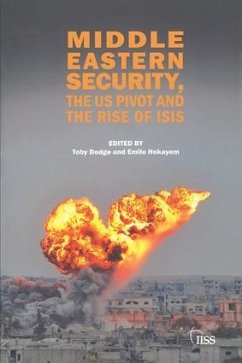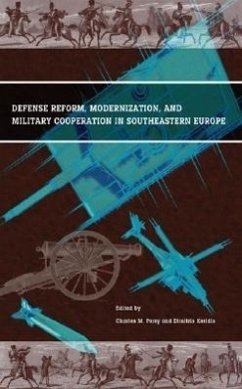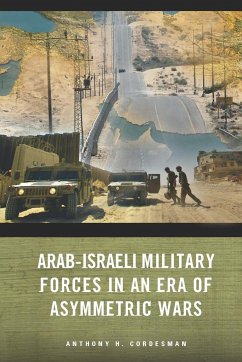Nicht lieferbar

An Arab NATO in the Making: Middle Eastern Military Cooperation Since 2011: Middle Eastern Military Cooperation Since 2011
Versandkostenfrei!
Nicht lieferbar
The Middle East and North Africa region has been one of the world's most unstable areas since World War II, and yet, the nations of the region have failed to develop any form of security architecture. The war and its aftermath seemed to have opened a window of opportunity for certain Arab states to cooperate more, but how and to what extent remain to be seen. Arab military cooperation has been, over the past century, mostly a history of failures. Whether the Arab League's Defence Pact or the Middle East Command, ideas for collective security in the region all failed to move beyond the state of...
The Middle East and North Africa region has been one of the world's most unstable areas since World War II, and yet, the nations of the region have failed to develop any form of security architecture. The war and its aftermath seemed to have opened a window of opportunity for certain Arab states to cooperate more, but how and to what extent remain to be seen. Arab military cooperation has been, over the past century, mostly a history of failures. Whether the Arab League's Defence Pact or the Middle East Command, ideas for collective security in the region all failed to move beyond the state of declarations. Most of the time, Arab states were either at open war or in cold peace. Since the Arab Spring has toppled not only regimes but also brought insecurity, new momentum has come into regional security. From joint exercises to the announcement of first an Arab and more recently an Islamic military alliance, states begin to move further into cooperation. As this Letort Paper shows, several obstacles will have to be overcome before collective security in the Middle East and North Africa can become a reality. This Letort Paper explains why the region has struggled so far to establish cooperative security, and what obstacles need to be overcome on the way to a system akin to the North Atlantic Treaty Organization (NATO). This publication makes the case that unless they are addressed, every new announcement of an alliance (be it of Arab, Islamic, Gulf, etc.) will remain a pie in the sky. Since the international community has yet again been considering such an architecture--perhaps even including Iran--this idea and its implementation are more important than ever. Related items: Stepping Up: Burden Sharing by NATO's Newest Members can be found here: https: //bookstore.gpo.gov/products/sku/008-000-01092-7 Foreign Relations of the United States, 1969-1986, V. XL1, Western Europe, NATO, 1969-1972 can be found here: https: //bookstore.gpo.gov/products/sku/044-000-02632-5 After the Spring: Reforming Arab Armies can be found here: https: //bookstore.gpo.gov/products/sku/008-000-01129-0







